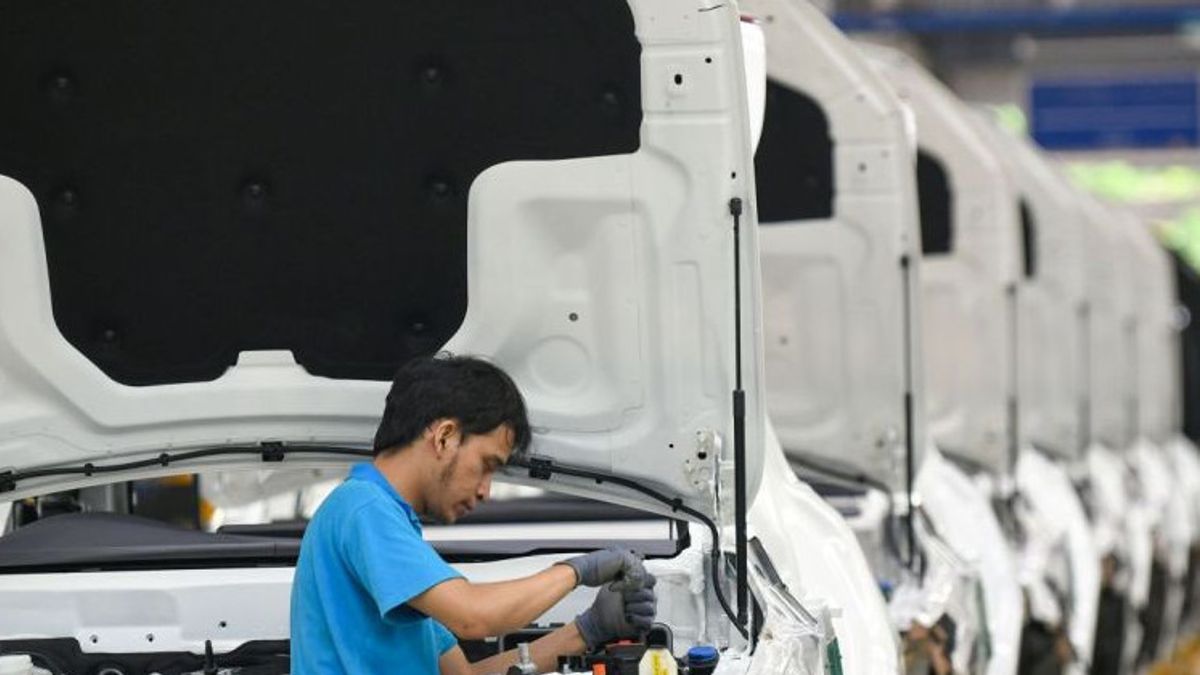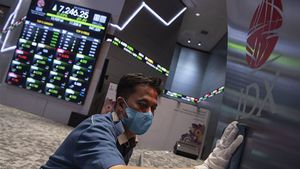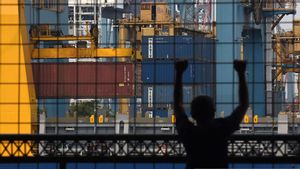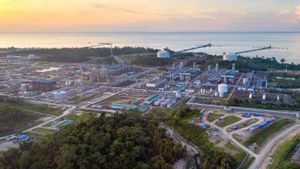JAKARTA - Head of the Manpower Division of the Indonesian Employers' Association (Apindo) DPN Bob Azam said Indonesia's Manufacturing Purchasing Managers' Index (PMI), which was expansive in the last 30 months, indicated that industrialization would continue.
"Industrial actors really see the brilliant achievements of Indonesia's manufacturing PMI for 30 consecutive months which also has an impact on national economic growth," said Bob in Jakarta, quoted from Antara, Monday, March 25.
Based on data from S&P Global, PMI in the manufacturing sector of Indonesia continues to be in an expansive phase in February 2024, which is at 52.7. The PMI figure, which continues to be within the expansionary scope, is a reflection of Indonesia's gross domestic production growth or GDP which has also grown positively.
Bob said that this positive achievement needs to be grateful because the national industrial sector has completely recovered from COVID-19. Indonesian Manufacturing PMI in February 2024 was able to surpass the Manufacturing PMIs of various other developed countries, namely China (50.9), Germany (42.3), Japan (47.2), England (47.1), the United States (51.5), Malaysia (49.5), Myanmar (46.7), the Philippines (51.0), Taiwan (48.6), Thailand (45,3), and Vietnam (50,4).
He assessed that the brilliant achievements of the manufacturing PMI must be followed by strategic steps by the government through various policies that are pro-to growth in the industrial sector.
"The industry does not work alone, it must be influenced by other policies such as trade and finance, and most importantly is there an indicator of employment," he said.
According to Bob, policies in other sectors such as taxes, ease of trade, the flow of goods, and others are one of the very factors in the growth of the real sector in Indonesia. Therefore, the government must seriously issue pro-to-national industrial sector policies.
"For example, we want production, but some imported raw materials are difficult to obtain, it will also hinder the creation of the real sector," he said.
Expansive PMI, said Bob, needs to be converted into real action with cross-sectoral support so that policies can run effectively and on target.
"The Ministry of Industry must be assisted by other ministries such as the Ministry of Trade and the Ministry of Finance. This includes the flow of goods. And also we are now faced with high logistics costs due to conflicts in various countries. PMI is a positive capital, in the midst of challenges both at home and abroad," he said.
Bob revealed that Indonesia is a country whose economic sector is very dependent on the consumption sector. In addition, Indonesia also has other advantages, namely abundant labor.
"These are two basic capitals that other countries don't have, Indonesia should be able to speed up its economy compared to other countries. But how can we be like India which formed a joint optimism between the business world and the government that the future economy will grow well," he said.
He also emphasized the importance of the role of investment in encouraging the national economy Currently, the industry is optimistic, and labor is available. This can be converted into a growing market condition.
SEE ALSO:
Therefore, he said that the role of the Ministry of Industry in the national economy has become very central. The Ministry of Industry is an institution that holds important command and greatly determines the progress of the national manufacturing industry sector.
"We really appreciate the Minister of Industry who continues to provide stimulus for the industry. But this is not his own work, there is another ministry that makes it easier, don't make it difficult," he said.
He hopes that in the future not only producers, but consumers will also be given incentives. However, Bob realized that providing incentives needed political support from the government budget.
"I think in the future the Ministry of Industry should be leading the ministry, if we are concerned that in the future, what should be driving economic growth is the industrial sector. The industrial sector is able to create a multiplier effect, the tax ratio will be good if the Ministry of Industry is the leading ministry," he said.
The English, Chinese, Japanese, Arabic, and French versions are automatically generated by the AI. So there may still be inaccuracies in translating, please always see Indonesian as our main language. (system supported by DigitalSiber.id)
















